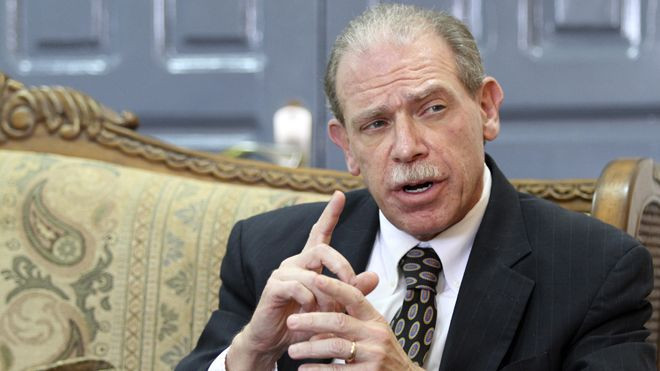Al-Qaeda Targets US Ambassador, Soldiers In Yemen; Embassy Issues Security Alert
Militant Outfit Announces Massive Bounty, Invoking Jihad

It appears as if al-Qaeda has not given up its bloodlust for U.S. ambassadors and soldiers. In a new message posted on militant websites on Saturday, Dec.29, the terrorist outfit apparently announced bounties of $160,000 for the head of the U.S. ambassador to Yemen, Gerald M. Feierstein, and $23,000 for the assassination of any American soldier in Yemen.
A new audio message produced by the al-Malahem Foundation, the group's media arm, announced offering three kilograms of gold for killing Feierstein, the Daily Mail reported.
The U.S.-based SITE Intelligence Group spotted the audio message released by the militants. Apparently, the al-Qaeda message stated that it was made "to encourage our Muslim Ummah (nation), and to expand the circle of the jihad (holy war) by the masses."
In a separate announcement, the U.S. Embassy in Yemen issued a security alert in the region urging U.S. citizens not to travel to Yemen and those staying there to depart.
However, the security alert seems to follow the abduction of three westerners from the Tahrir Square area of Sanaa on Dec.21.
The al-Qaeda message invokes painful memories of the killing of Christopher Stevens, the U.S. ambassador to Libya, two marines and a communication officer in the Sept. 11, 2012, attack on the U.S. Embassy in Libya.
Al-Qaeda in the Arabian Peninsula (AQAP), identified as the Yemen-based branch of al-Qaeda comprising militants from Yemen and Saudi Arabia and considered to be the most dangerous of the networks founded by Osama bin Laden, has apparently put up the bounty. And, it appears that the offer is valid for six months, Reuters reported.
The group has close to 600 members and spans several towns and villages. It is allegedly responsible for several assassinations in Sanaa, the capital city of Yemen.
The U.S. military and CIA have been waging a covert war against the terrorist group for years.
The latest death threat appears to be part of a the militant group's long-term strategy; previously, the chief of security for the U.S. Embassy in Sanaa was assassinated by militants in October 2012.
The attacks against U.S. embassies in the region seemed to be provoked by an anti-Islam film produced in the United States earlier this year.
Yemen, an ally of the U.S., witnessed mass protests that led to the stepping down of veteran leader Ali Abdullah Saleh in February after decades in power. Currently, president Abd-Rabbu Mansour Hadi's government is said to be taking earnest efforts to re-establish order and unify the army.
Washington, which has pursued a two-pronged campaign against suspected al-Qaeda members, used drones and missiles to spearhead a military offensive in May to recapture areas of the Abyan province. But militants were quick to retaliate with numerous bombings and killings.
In Sanaa, two gunmen on a motorbike shot dead two intelligence officers early Sunday as they were leaving a downtown security facility, officials told the Daily Mail.
Speaking on condition of anonymity, the officials added that intelligence and security officers had been instructed to take precautionary measures after working hours.
© Copyright IBTimes 2025. All rights reserved.





















